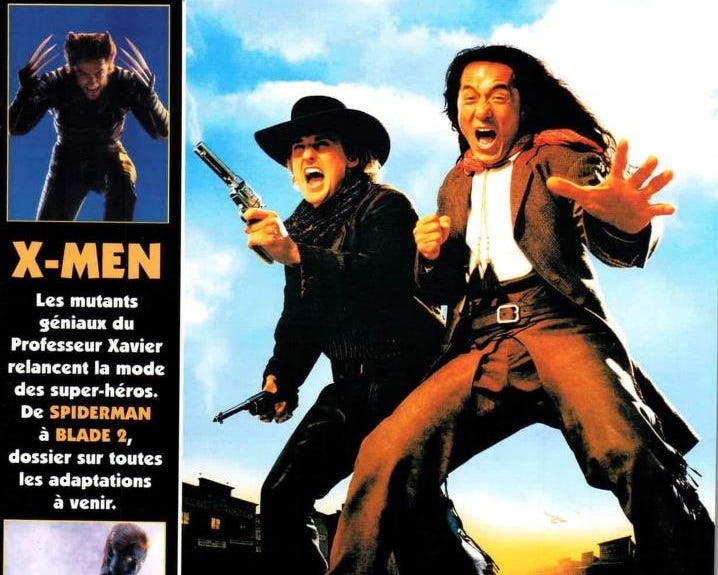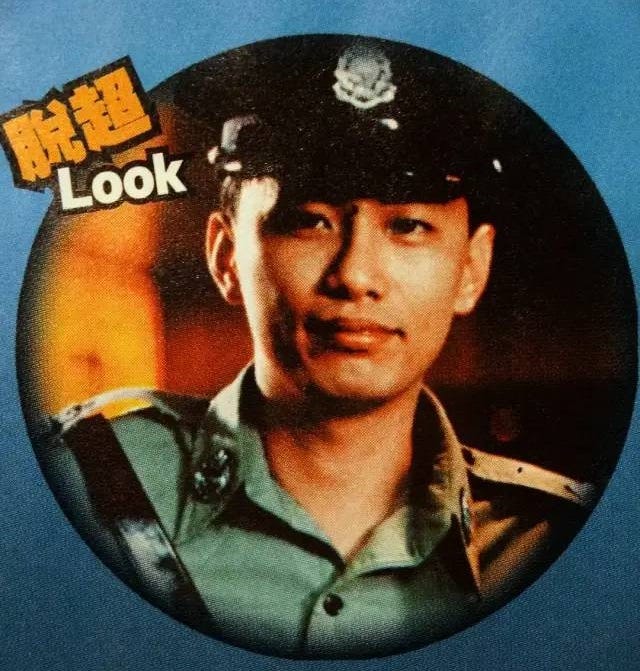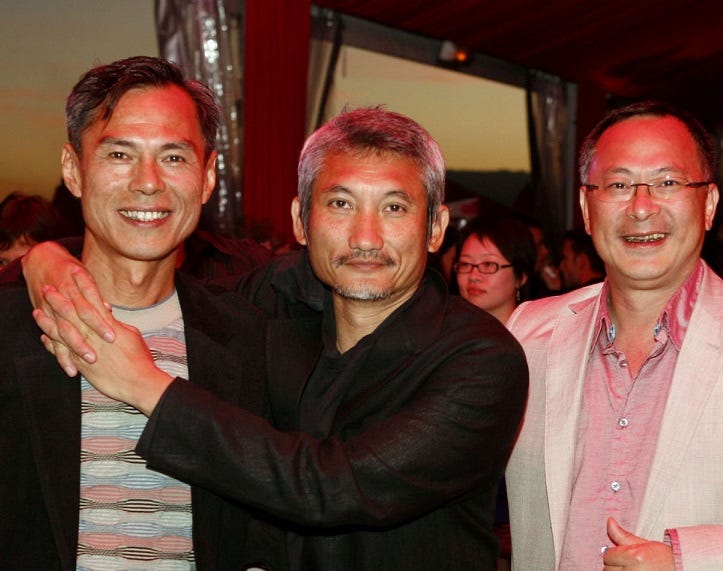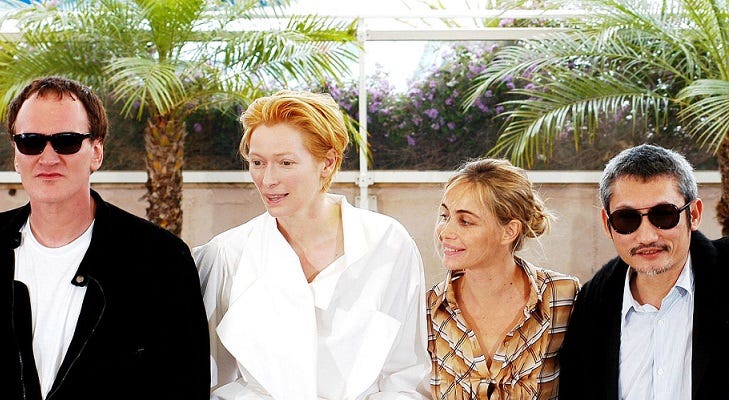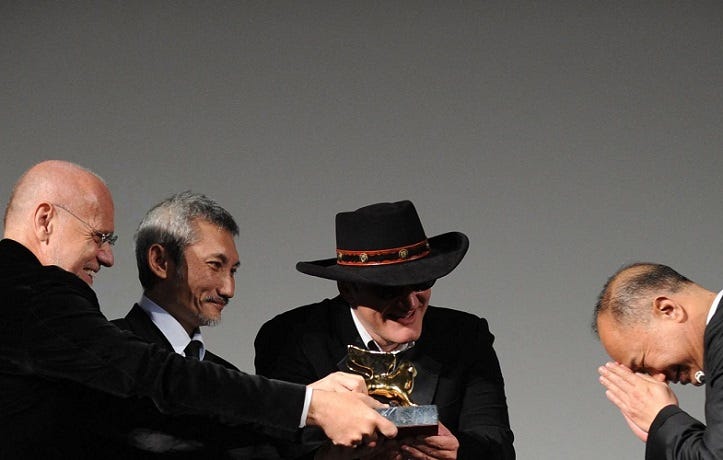X-Men (2000), Spider-Man (2002) and Blade 2 (2001) all had Hong Kong stunt directors working on them like Shanghai Noon (2000). The above image is the cover for issue 87 (August 2000) of the original Impact magazine. After the U.K. Impact arrived on the zine scene in January 1992, the French progenitor had to step up their game for all things Hong Kong. The next French issue was in February 1992, which was barely enough time for the French to play catch-up with their H.K. content. H.K. film historian Arnaud Lanuque could have been their best contributor but he only contributed to the originator of French Impact - Mad Movies - along with a couple of other French magazines. Arnaud was 19 years old when H.K. was handed back to Mainland China in July 1997 (three months before his 20th birthday). French Impact had finished in February 2001 (issue 90) while the British one ceased publication in January 2012. August 2012 was when Arnaud Lanuque moved to H.K. One of Arnaud’s friends in H.K. is an English journalist who not only worked for U.K. Impact but became its editor after Bey Logan moved on. Anyway, here is a “greatest hits” compendium of French Impact’s H.K. journalism.
In the December 1992 issue (No. 42), Brandon Lee didn’t think much of director Ronny Yu during the making of Legacy of Rage (1986): “On the set, anarchy was the rule. The shooting took place day by day, blindly. In the morning, the director arrived on the set without having prepared anything. Improvisation guided all the work, including that of the actors often engaged in other films at the same time. It was really chaotic. Similarly, the safety of the stuntmen and actors was not a major concern as it is in the United States. Which means that accidents happened regularly. I am surprised that Legacy of Rage is not as bad, as its shooting was trying.”
In the February 1995 issue (No. 55), director Wong Kar-Kai explained the genesis of Chungking Express (1994): “It's a long story! The filming of Ashes of Time lasted more than a year. It was a very long costume drama to make. We had to take into account everything: the production, the sets... I finished filming in May and the film was to be presented at the Venice Film Festival in August. While waiting for post-production, the idea of filming Chungking Express came to me. I wanted to put more creativity into play, to make an easier film, with a simple story. In fact, I had already had bits of ideas and I wanted to get three stories out of them. Filming Ashes of Time really exhausted me. Making Chungking Express was a way for me to take a vacation!”
A polite way of saying no concrete screenplay: “Almost the entire film is improvised. I had these initial ideas well before the shooting and I had kept them in a corner. So I started from there to improvise as much as possible. In fact, I wrote at night and filmed during the day. That's why I was never able to fit in my third story because in fact, I realized along the way that the first two were already too long! So I simply deleted it. It's the one for the film I'm developing at the moment, called Fallen Angels.”
His writing process and muse: “I really like writing in cafes. I find my ideas and inspiration there. I noticed that Brigitte Lin Ching-Hsia meets others in cafes. We meet there to talk and then we go home, each on our own side in the intimacy of the home. My dream would be to be able to keep the same place for my other films. Each time, new characters would come to meet there. In addition, in Hong Kong things move very quickly. I recently went back near the small fast-food restaurant of Chungking Express and the place has already completely changed. Suddenly, it gave me a new idea and I really intend to film this place.”
The casting process: “Maybe I use the same actors too often. That's why I plan to work more and more with people I don't know. Especially on my new project. I like the idea of breaking the stereotype that actors represent. It's a way, I think, of bringing out what they have inside. As for Lin Ching-Hsia, she is an actress who has made over a hundred films. She has seen it from every angle. She has made it from every angle. Hiding it made the character less predictable. It is a shock to see her dressed like a drug dealer! I really like uniforms. That is why there are often police officers in my films. Actually, I wanted to create a kind of uniform for the character played by Lin Ching-Hsia.”
Explaining a trademark: “In Ashes of Time, the voiceovers are style. But in Chungking Express, that's another aspect that interested me. The characters are all very solitary, this process allowed me to create an interior monologue for them. These are people who talk to themselves a lot. The voice-over is not very popular. It is too often related to art-house cinema, which is not appreciated in Hong Kong. But each time, I think there is a good reason to use it. In Days of Being Wild, for example, it created a link between the characters. For Ashes of Time, it is different. The film is based on a literary work and I wanted us to be able to feel it, for the soundtrack to be able, at the limit, to do without the images. But it is mainly this effect of isolation, of solitude that interests me.”
Soundtrack: “California Dreaming and What Difference a Day Makes are songs that I often listen to at home. When I started shooting, I saw that opposite the fast food restaurant where we were shooting there was a restaurant called California. So I embroidered on that by improvising.”
A fish is no longer out of water: “The world is getting smaller and smaller, cultural differences are gradually becoming less frequent. When I travel to foreign countries today, I don't even feel disoriented anymore. I often feel like I've already seen a certain place simply because that reminds me of a movie.”
In the February 1996 issue (No. 61), director Tsui Hark was interviewed about his take on Wong Fei-Hung: “As the days of shooting went by, I had indeed realized that there was still a lot to do with the character, a large number of directions to explore, and that this first film was in fact only a presentation - the beginning of something. I had only scratched the surface. It's a rare feeling, which I felt in the same way with my last film, The Blade, which is really the birth of something new, of a new universe to explore. In short, Once Upon a Time in China came out and I immediately tried to convince my investors to follow me on a second chapter, which oddly enough wasn't that easy. But then, the machine was launched. That's when, paradoxically, I started to have some doubts. Because there's always a risk when you decide to explore the same concept further and further. I actually have quite opposing feelings about sequels.”
Tsui never saw his Wong Fei-Hung film series as politically motivated: “I must point out that I never thought that the political aspect had to be so important throughout the series. It was above all an effective way of placing the character directly in his historical context, more than a desire to truly question in depth the political situation at the end of the 19th century. In fact, it was above all the confrontation of a legendary hero with an environment that he sometimes has difficulty understanding that interested me here. That said, there was also the risk that this political background would become a gimmick, and it was time to change direction.”
About the Wong Fei-Hung TV series: “We thought we'd finish last October, but there's a bit of a delay and it should finally start airing sometime in '96. I'm a producer on the soap opera and Chin Man-Cheuk plays the role of Wong Fei-Hung. In fact, it's eight real films divided into five episodes each, which brings us to forty episodes.”
Green Snake (1993) was originally going to be an ‘80s film starring Anita Mui and Gong Li: “It's always torture for me to change the casting of a film I've been thinking about for a long time. Because as soon as I have my casting in mind, I already have a very precise image of what the finished film will be like, since I write with my actors directly in mind. Any change can therefore be dramatic. With Anita, the snakes of the film would have been very different. In my mind, Anita Mui embodied the white snake - a truly reptilian, elusive creature, who gradually transformed into a possessive, sulphurous woman. In opposition to this creature, the male character - this monk who fights the snake women - became a true symbol of virility, a selfish seducer, and from then on everything the film would have rested entirely on this opposition. But I had to turn everything upside down. So I think that in the end, I'm perhaps a little disappointed. Green Snake is one of those projects that pass, like that, and I actually forgot about it a bit.”
Despite its fast pace, it wasn’t made quickly: “It actually took a long time because we had a lot of problems. The known shooting took place during the rainy season. Because of that, there was a rather gloomy atmosphere on the set, because it rained every day. Besides, the word is not quite right: it is more of a permanent deluge that we should be talking about! It was quite strange, this battle against the elements. Strange and sometimes risky, since we faced four typhoons and the whole team was almost buried by a mudslide one day! I was involved in other productions at the same time and there was a lot of pressure, a lot of anxiety, especially with the special effects which were particularly complex. I even cut a lot of effects scenes that really didn't work at all.”
The religious content: “It's true that there are also connections to be made with Buddhism, especially, obviously, with the character of the monk. This actually comes from a trip to Nepal that I made a few years ago. There, I visited a temple where the entire space was covered with engraved religious inscriptions: the tables, the columns, the floor; it was completely crazy. This representation of a faith pushed beyond the limits of reason appears in Green Snake in the attitude of the monk. His fanaticism makes him a symbol of obsession erected into a system, stifling all his instincts and the symbol of human madness. This is also something that we find in the two snake women, who in order to become human and integrate into society, must abandon their animal instinct, become clean, smooth. Green Snake is entirely based on this confrontation between the pressure of the laws and instinctive survival. And from this fight between human and animal, between order and instinct, a kid is finally born - a new generation. The question is what could we do with this new generation?”
Tsui Hark uses The Chinese Feast (1995) as a framing device for a statement about Hong Kong: “You know that this city is a mixture of different cultures, without any of them really expressing themselves completely. Hong Kong IS a very cynical city, culturally and socially. And there is always this slightly caustic tone. Hong Kongers love to make fun of themselves, to laugh at tragic things. So much so that if they are confronted with terrible events, they run away. It is as if it were impossible for Hong Kongers to allow themselves to be sad, because we don't have time. It is a way of surviving... You see, it is quite curious. When I make a very serious film, people always say to me: “Hey Tsui, it's too much, you're boring us.” And this is an attitude that is even more exacerbated among teenagers. Hence this form of humor, always cynical, which is easily explained. Taiwan can afford to be angry with China, to adopt very firm political positions. As for China, it can obviously be very dominant, but Hong Kong... Hong Kong doesn't have much. It's as if there was someone in the house, and you always had to act with diplomacy. So to release the pressure, you become cynical. It's normal. It's Hong Kong culture. It's a bit sad.”
Tsui Hark talks about a Ching Siu-Tung film that he produced - Swordsman II (1992): “I worked a lot on the androgynous knight character played by Lin Ching-Hsia. After three days of shooting, I went to see her and told her that her character would in fact be a man. Which did not surprise her too much because she knows that this is the kind of slightly strange idea that I sometimes have. The following evening, I told her that her voice would be dubbed by a man! She began to wonder where we were going, and I could sense that she was becoming less and less comfortable. And then finally, everything changed and the character clearly became a woman again! Sometimes she was saying dialogues on set whose meaning we reversed together in post-sync, at the last minute. It may seem a bit convoluted, but it was probably the only way to really create this sexual confusion in which the whole film is bathed. Obviously, this kind of work is only possible with solid actors, who are ready to play the game until the end. But we must realize that there is always a danger there, because it is extremely hard for actors to keep control when they are confronted with such destabilizing situations.”
Final thought: With Hong Kong film companies being eager to sell their films at France’s Cannes and Milan’s MIFED film festivals, they should have sought to cast French and Italian thespians. For example, there is a Hong Kong actor named Elvis Tsui who cited French actress Isabelle Adjani as his favourite-ever actress. There were more collaborations between Hong Kong and Italian film companies in the seventies.




